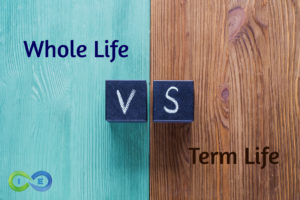Imagine having access to a low-interest loan without credit checks, lengthy applications, or restrictions on how you use the money. That’s exactly what life insurance policy loans offer. By leveraging your policy’s accumulated cash value, you can access funds while your money continues growing. This comprehensive guide explains everything you need to know about borrowing against your life insurance and why many financial strategists consider it one of wealth-building’s best-kept secrets.
Table of Contents
Introduction to Life Insurance Policy Loans
One of the benefits of cash value life insurance such as whole life and universal life is the ability to take out a life insurance loan against the cash value in your life insurance policy.
This has been termed “borrowing from yourself,” and while the interest you pay on such loans actually goes to the insurance company, the fact that your remaining cash value continues to earn interest does make the process similar to being your own “banker.”
The idea here is that because your remaining cash value after the loan has been paid out still earns interest, the actual interest rate on the loan will often be much lower than would be the case if you took out a personal loan from a bank or used a credit card.
7 Benefits of Borrowing Against Your Life Insurance
The following seven benefits of borrowing against your permanent life insurance policy’s cash value will provide a glimpse into why cash value life insurance is a great vehicle for creating wealth and leaving a legacy.
Easy Access
Because the insurance company uses your cash value account as collateral for a loan, there is no lengthy application process or credit checks. Contrast this with cash out refinance, where you must qualify before you can tap into the equity of your home.
There are no qualifications or hoops to jump through besides having enough money in your cash balance to fund the loan.
The money from the loan can typically be in your pocket in as little as a week’s time.
No Fees
Another benefit of these loans is that there is usually no origination fee as is often the case with consumer loans. Your cash value is your money and you can borrow against it with no fees or cost, outside of the interest charged to you by the insurance company.
Does Not Show Up On Your Credit Report
Unlike typical consumer loans, your life insurance loan will not show up on your credit report. So, if you are an investor or you are an entrepreneur looking for additional funding, your life insurance loan will not count against you on your credit report.
Low Adjusted Interest Rates
While the insurance company does charge interest on your loan, because your remaining cash value continues to earn life insurance dividends, the adjusted interest rate on the loan can often be lower, sometimes much lower, than you would pay on a comparable personal loan from a bank, home equity line of credit, or by using a credit card.
For instance, interest rates on loans on cash value insurance currently range from 4% to 8%, so if you took out a $50,000 loan from your cash value insurance at 5% with $50,000 still left in the account compounding at 5%, the effective rate on the loan would be 0%.
Flexible Loan Amount and Terms
You can typically borrow up to 90-95% of the cash value of your whole life insurance policy from your insurance company.
You also have leeway to construct a repayment schedule that works best for you. The schedule can be modified if necessary, and if you find that you ultimately can’t pay it back you don’t have to, although there can be tax consequences if this causes your policy to lapse for lack of premium payments.
The wide latitude cash value loans offer in comparison to the stricter terms typically associated with other types of loans are one reason for the popularity of borrowing against your life insurance policy’s cash value.
Tax-Free Loans
Generally speaking, cash value loans are tax free as the funds you receive are not classified as income by the IRS.
There are exceptions, which we’ll cover later in the article, so be sure you understand the rules regarding tax-free cash value loans before taking one out.
Taking loans from tax-favored retirement plans such as 401ks loans and withdrawals is typically more difficult, as such loans can generally only be used for certain specified purposes if they are available at all.
Investment Arbitrage Opportunities
As mentioned earlier, if you take out a relatively small loan from your policy and the interest rate differential between the interest you earn on your cash balance and the interest the insurance company charges you for the loan is not too large, your cash account may continue to gain value even after loan payments are considered.
A riskier approach some investors use is to look for investment arbitrage opportunities by investing their loan funds in assets they believe will provide them with higher returns than would be achieved by simply allowing the cash balance to grow at the policy rate.
Caution should be used if this approach is taken. If seeking out higher returns results in an inability to pay back the loan this can ultimately cause the insurance policy to lapse once the cash value is depleted. As a result, you should be fully cognizant of the risks involved before embarking on such a strategy.
THE ULTIMATE FREE DOWNLOAD
The Self Banking Blueprint
A Modern Approach To The Infinite Banking Concept

Policy Loans vs. Other Borrowing Options
| Feature | Life Insurance Policy Loans | Personal Bank Loans | Credit Cards | 401(k) Loans |
|---|---|---|---|---|
| Application Process | None required | Extensive | Moderate | Simple but restricted |
| Credit Check | No | Yes | Yes | No |
| Typical Interest Rate | 4-8% (lower effective rate) | 5-36% | 15-25% | Prime + 1-2% |
| Repayment Flexibility | High | Low | Medium | Low |
| Usage Restrictions | None | Sometimes | None | Strict |
| Tax Implications | Generally tax-free | No tax benefit | No tax benefit | Complex tax rules |
4 Disadvantages of Life Insurance Policy Loans
Policy Loans Reduce the Death Benefit
The reduction in the death benefit due to policy loans is often not a major drawback as many cash benefit life insurance plans are designed to increase the death benefit over time. Thus, if you take out a loan the remaining death benefit may still provide acceptable coverage.
Also, you may not need as much death benefit coverage later in life, so you are OK with a decreased death benefit.
That being said, it still makes sense to carefully consider how any reduction in assets for your heirs caused by a loan would affect your estate planning before taking out a loan.
One way to deal with this is to fund Paid-Up Additions (PUAs) during loan repayment. These payments are allocated in the following manner: approximately 95% to cash value, with the remainder serving to incrementally boost the death benefit. Using PUAs is an effective method of increasing your available cash value while at the same time boosting the policy’s death benefit.
Interest Charged on Loans
If you don’t pay back a loan, the interest being charged reduces your cash value. While the interest credited to your remaining cash value can offset the interest charged on the loan to some degree, if the loan isn’t repaid after a long enough time there is a risk of policy cancellation. If this happens not only is the life insurance itself lost, but there can also be tax consequences.
Possible Tax Consequences
Borrowing more than you’ve invested in a life insurance policy as a result of growth in the cash value over time can cause a “tax event” to occur if you surrender or cancel your permanent life insurance at some point. This occurs when the total amount taken from the policy including loans and withdrawals is greater than the amount you contributed, i.e. your “basis” in the policy.
Additionally, the IRS considers specified types of insurance policies with high cash balances to be modified endowment contracts (MECs). Tax-free life insurance policy loans are not allowed on these types of contracts.
Properly structured whole life and IUL policies should not be classified as MECs. Make sure to verify that this is the case before taking out a life insurance policy loan.
Emergency Fund Depletion
The cash value in your life insurance helps protect your policy benefits by providing a cushion that can be used if you can’t make premium payments for any reason. If you borrow a significant portion of the cash value you run the risk that, if premiums aren’t paid in a timely manner, it could cause the policy to lapse.
If your policy should lapse, in addition to the loss of insurance coverage there is also, as mentioned above, the risk of incurring tax consequences.
Withdrawal vs Life Insurance Policy Loan
Given that withdrawals are considered taxable income when they exceed the amount you have invested in permanent life insurance policies (i.e. your Basis), loans are typically a better way of accessing your cash value if you intend to pay back the money at some point.
However, if you don’t intend to pay back the life insurance loan, you are usually better off just taking a withdrawal and avoiding the interest that will be charged on a loan.
The downside to taking a withdrawal is the cash value is depleted. With a life insurance policy loan, your cash value continues to grow, even though you are using it as collateral for your loan.
Another factor to consider if you want to access your cash value is that if you take a withdrawal you can’t replace the funds you have withdrawn. Thus, unless you no longer need the insurance benefits provided by the policy, taking a loan offers you the ability to maintain permanent life insurance coverage while still accessing a significant portion of the cash.
Age can be a factor in deciding whether to take a withdrawal or loan. For instance, if you are at an advanced age and nobody is relying on the death benefit of your policy, it might make sense to take out a life insurance loan with the knowledge that it will ultimately be covered by the death benefit on the contract if you don’t pay it back.
However, if you are in relatively good health later in life with many years to live but have insufficient income to pay back a loan, you may be better off taking a withdrawal instead of taking a loan that you are unlikely to repay and that will incur costs over time in the form of interest expense.
Generally, younger individuals who wish to preserve their insurance benefits and cash value will be better off taking out life insurance policy loans rather than withdrawing cash from a whole life policy, assuming they believe they have the means to pay off the loan.
This is especially true when the need for the money is short term and the repayment time horizon is not unduly long.
As mentioned earlier, cash value life insurance loans can also be used to fund short-term investment opportunities. However, this can be a risky undertaking, especially if the investments selected are subject to significant volatility.
If you take this approach, you should make sure that you have a backup plan to repay the loan in case the investments don’t do as well as expected.
THE ULTIMATE FREE DOWNLOAD
The Self Banking Blueprint
A Modern Approach To The Infinite Banking Concept

When to Choose: Withdrawal vs. Policy Loan
Choose a Policy Loan When:
- You plan to repay the borrowed amount
- You want your cash value to continue growing
- You need to maintain your policy’s death benefit
- You’re using the funds for short-term needs
- You want to avoid immediate taxation
Choose a Withdrawal When:
- You don’t plan to replace the funds
- You want to avoid ongoing interest charges
- You’re older and less concerned about maintaining the full death benefit
- You want simplicity without repayment obligation
- Your withdrawal won’t exceed your cost basis (to avoid taxation)
Avoiding Policy Lapse Due to Loan Default
One issue with taking a borrowing money using your permanent life insurance policy’s cash value is the potential of a policy lapse if the loan isn’t repaid.
While interest earned by the policy can offset this risk to some degree by significantly extending the length of time it takes for a policy to run out of cash value to pay premiums, if this does occur the consequences can be severe.
Not only does a lapsed policy cancel death benefit protection but, as mentioned earlier, it can also result in tax consequences – the IRS requires a policyholder to pay taxes on gains based on the gross value of a policy, even if that value reflects the loan amount the policyholder needs to repay.
For this reason, a life insurance policy loan should be taken mainly in cases where you feel comfortable you can pay it back.
Ways to Avoid Policy Lapse
If you do have trouble paying back a loan, there are ways to avoid a taxable policy lapse.
For instance, a number of insurance companies offer life insurance riders known as “over-loan protection riders” that come into play when certain parameters are exceeded to avoid the issue of lifetime distributions exceeding basis and triggering a tax liability.
You can also reduce the face amount of a loan or surrender a certain amount of cash value to avoid incurring tax liability from a policy’s lapse.
The flexibility and low adjusted interest rates associated with borrowing against cash value life insurance makes such an option well worth considering if you are looking to fund short-term cash needs without unduly disrupting your long-term financial plans or incurring significant loan costs.
Conclusion
While there are a number of factors that should be taken into account when considering taking such a loan, the benefits they offer give them certain advantages over other sources of funding such as bank or retirement account loans and credit cards. Make sure you do your homework before taking out a life insurance policy loan to ensure you understand how the process works and the long and short-term impact doing so will have on your financial situation.
Get Your Customized Life Insurance Loan Strategy
Unlock the full potential of your policy’s cash value with a personalized borrowing plan. Our experts will show you how to access your money while continuing to build wealth through your life insurance policy.
- ✓ Learn how to maintain your policy’s growth while accessing cash
- ✓ Discover tax-efficient strategies for using policy loans
- ✓ Explore investment arbitrage opportunities with minimal risk
- ✓ Get a personalized loan repayment strategy that maximizes returns
- ✓ Understand how to avoid triggering tax consequences
Schedule your complimentary 30-minute policy loan assessment and discover the banking strategy wealthy families have used for generations.
Get Your Free Policy Loan Strategy Session
No obligation. No sales pressure. Just expert guidance to help you become your own banker and take control of your financial future.
Frequently Asked Questions
What’s the difference between withdrawing from and borrowing against my life insurance policy?
When you withdraw from your policy, you permanently remove those funds from your cash value, potentially reducing your death benefit. With a policy loan, your cash value continues to grow as collateral, and you can repay the loan to restore your full death benefit.
How much can I borrow from my life insurance policy?
You can typically borrow up to 90-95% of your policy’s cash value. The exact amount depends on your specific policy and insurance company.
Is there a credit check when borrowing from my life insurance policy?
No, there is no credit check when taking a life insurance policy loan. Since you’re using your own policy’s cash value as collateral, the insurance company doesn’t need to assess your creditworthiness.
What are the interest rates on life insurance policy loans?
Interest rates on life insurance policy loans typically range from 4% to 8%. However, since your remaining cash value continues to earn interest or dividends, the effective rate can be lower than traditional loans from banks or credit cards.
Can I use a life insurance policy loan for any purpose?
Yes, you can use a life insurance policy loan for any purpose. Unlike loans from retirement accounts which may have restrictions, policy loans can be used for anything from emergency expenses to investment opportunities, education costs, or major purchases.





5 comments
erik
how many times can you make a loan on your infinite banking policy? is it one loan at a time? or multiple loans at a time?
Insurance&Estates
Hello Erik, you can take loans up to your cash value limit as stated at a given point in your policy growth. If you pay down your loan, you can take that amount out again in as as a loan.
For a more detailed discussion, I recommend you connect with Barry Brooksby at barry@insuranceandestates.com.
Best, Steve Gibbs, for I&E
Benjamin
Hi. If there is more Information may you please send it to me.
Insurance&Estates
Hello, thanks for reading and commenting. If you would like more information, we offer a search box on the blog page or you can schedule a discussion with one of our Pro Client Guides.
Best, I&E Team
Wesley kruger
Please call wesly